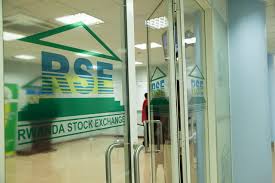


East African stock markets are pursuing additional revenue raising prospects in data vending business to cushion against faltering trading incomes, linked to declining equity market performances across the region.
Rwanda Stock Exchange (RSE) is the latest entrant into the business that the regional exchanges are viewing as an important source of revenue in turning around their financial fortunes, battered by declining share trading activities and shrinking proposals for rights issues and initial public offerings (IPOs).
“Typically in the exchange(RSE), we have sources of revenues such as trading income, listing and so on, but now we have started also doing some bit of data vending and other few things that can generate more revenues, but we are remaining focused on new products coming to the market,” RSE’s Chief Executive Celestin Rwabukumba said in an interview, adding that the exchange is struggling to attract new companies to list and that last year (2023) and this year, it is yet to receive any list proposals.
“This is diversification of our revenue streams other than trading income. This year we will not have any new listing and last year we didn’t have any equities (listing).”
More than 10,000 new investors joined the RSE in 2023 enticed by the promising prospects of expanded range of investment products, full automation of trading activities and conversion of the exchange into a commercial entity through diversification of its revenue streams.
RSE posted a 17 percent increase in the number of investments accounts to 69,654 active investors in November 2023 from 59,530 in the same period in 2022, according to its latest annual report (2023).
“These combined efforts to sensitise retail investor market niche, increasing efficiency levels and public outreach contributed to raising further the profile of the exchange.
In the year, we increased our visibility on the world stage by actively participating in different regional and international conferences and activities,” says Bob Karina, chairman, RSE.
RSE’s equity market recorded a total turnover of rwf 6.89 billion($5.05 million) from 33 million shares traded in 566 deals in 2023, translating into a decrease of 57 percent in turnover compared to rwf 16.15 billion($12.1 million) recorded in 2022.
Its net profit grew by seven percent to rwf 599.5 million ($439,777) from rwf 559 million ($410,067) in 2022, while revenues grew by 10 percent to rwf 1.46 billion ($1.07 million) from rwf 1.33 billion ($975,652) in the same period.
Kenya, Uganda and Tanzanian securities exchanges have already embraced the data vending business to boost their revenues and ensure decent return to shareholders.
For instance, the Nairobi Securities Exchange (NSE) recorded a 24.6 percent increase in revenues generated by selling its data to Ksh116.56 million ($ 895,994) in 2023, from Ksh93.54 million ($719,040) in 2022, helping to push up its net profit by 34 percent to Ksh18.4 million ($141,440) from Ksh13.72 million ($105,465) in the same period.
NSE says through its annual report (2023) that the Board made the strategic decision to diversify the revenue sources in 2023, to ensure that the business remains adequately cushioned from market instability as experienced in the last two financial years.
“The Board has placed special focus on exploring various opportunities for driving growth at an enterprise-wide level. Driven by this focus, we have continued to undertake various initiatives to stimulate the growth of our market.
“Key is to accelerate the growth of alternative revenue sources as we gear performance in our core business.”
Amongst these non-trading revenue sources, according to the company’s annual report are data vending income, rental income, interest income on term deposits and government securities and training fees.
In Tanzania, the Dar es Salaam Stock Exchange (DSE) introduced a market data Policy in 2021 that sets out operational framework in relation to dissemination of market data by way of data vending and subscription.
This Policy is applicable to data dissemination across the equity segment, debt/ or bond segment, and any other segment which may be introduced by the DSE.
Data Subscribers proposing to access Market Data are required to subscribe on the Data Portal after accepting terms and conditions.
The data and information include any figures, statistics and numbers in relation to security (including price, identifiers, volume, and trade related data) as well as any company and includes, without limitation on real time data, snapshot data, delayed data, end-of-day data, historical data and corporate data which may be transmitted to the subscribers by DSE.
In Uganda, the Uganda Securities Exchange (USE) introduced data vending services in 2018 focusing on its diversification agenda grow non-trading revenue as a core part of its business growth and sustainability strategy.